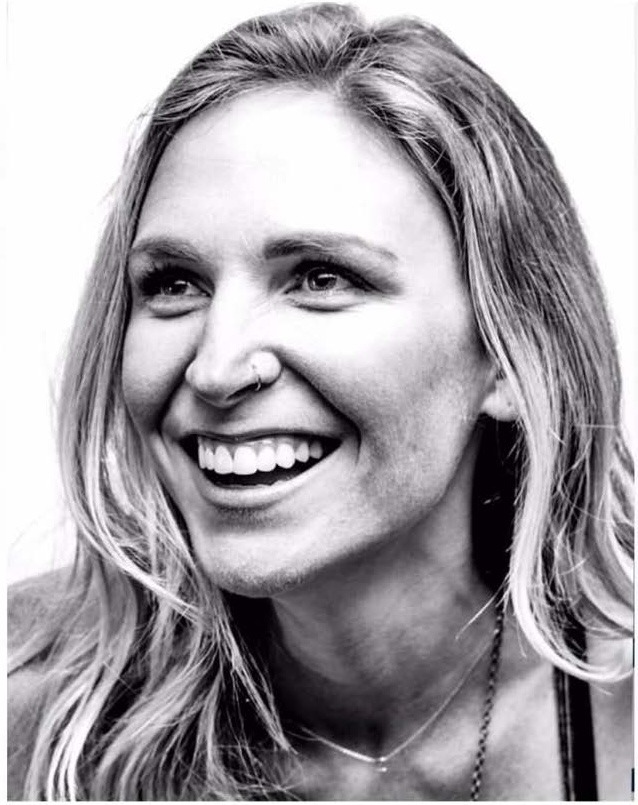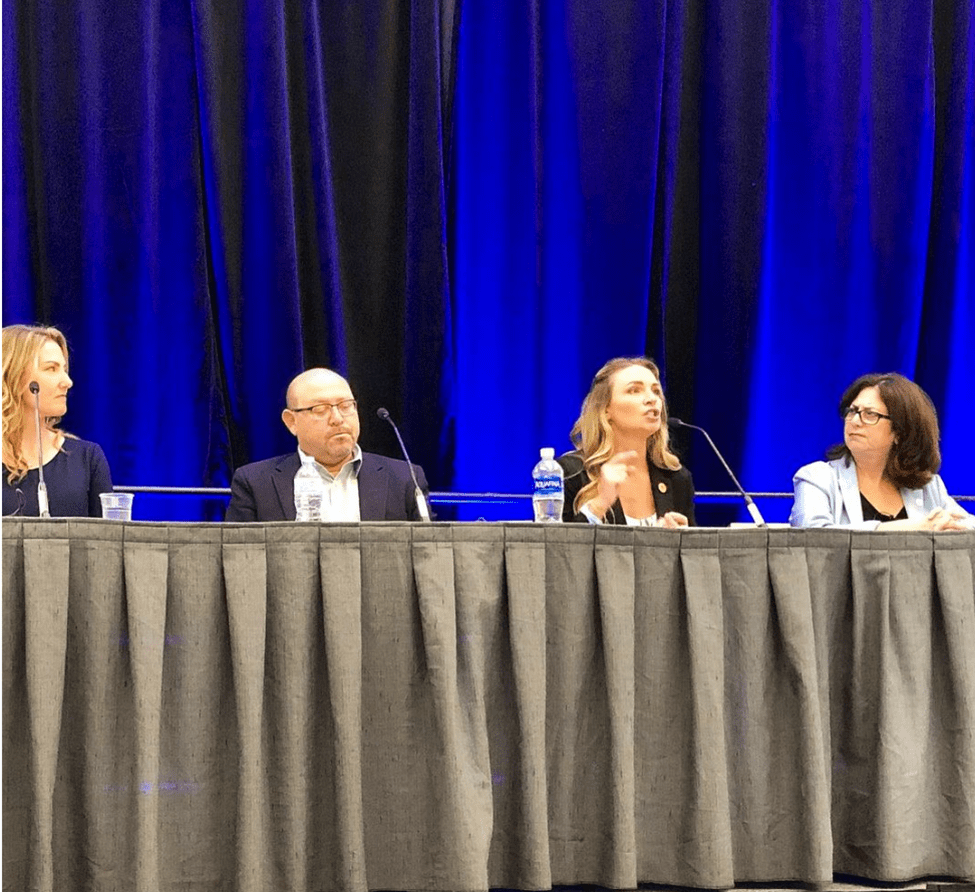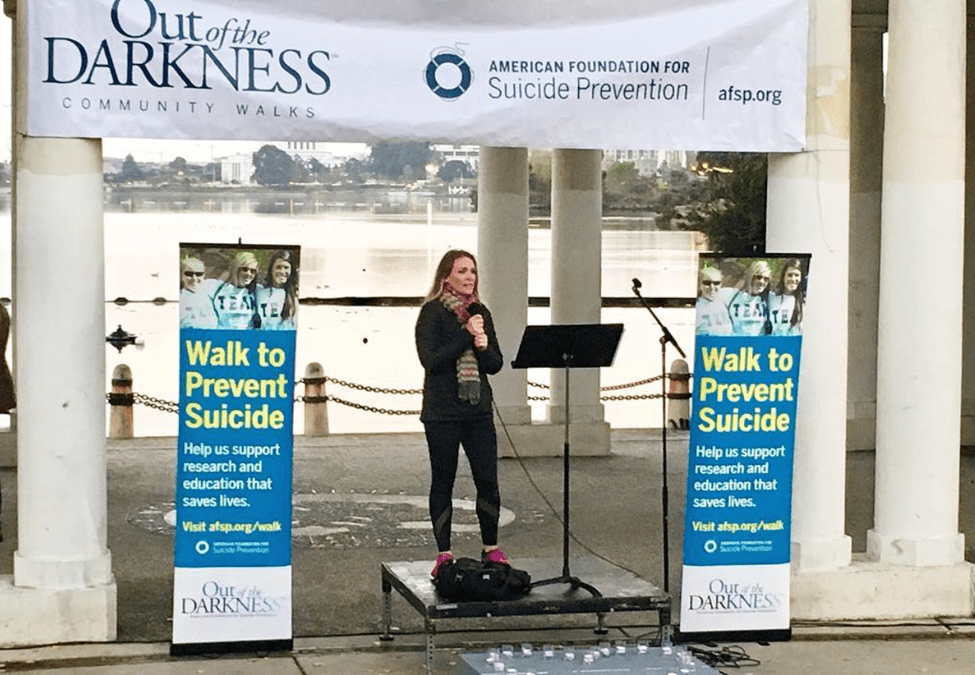
Author: Katie Kaufman, MSW, LCSW
As a person who has attempted suicide and now works as a licensed mental health therapist and still lives with depression and anxiety, I’d like to share my story and explain why it’s essential to own and share yours.
I was 15 years old and in high school, had supportive friends and family, was involved in sports and theater, and got good grades — but no one knew the internal battles I struggled with on a daily basis.
During my sophomore or junior year, I was diagnosed with depression and anxiety, and soon thereafter attempted suicide for the first time.
Bouts of self-harming followed this for a few months and subsequent major depressive episodes on and off ever since, which I still live with today, 20 years later.
Six years ago, my life changed when I made a difficult but life-changing decision to leave jobs, settings, and people that made me unhappy. I was asked to be the keynote speaker at the American Foundation for Suicide Prevention’s (AFSP) Out of the Darkness Community Walk in Oakland in front of over 900 people; it would be the first time I publicly spoke out about my mental health.
After I shared my story of suicide attempts and mental health struggles for the first time, I realized I could (and also wanted, and in some ways needed, to) capitalize on my depression and anxiety by resourcing these “dark” parts of myself into activators of empowerment and social change; I could offer education and hope. I switched my career and environment, moved from the cold Bay Area to sunny San Diego, enrolled in graduate school, earned my Masters Degree in Social Work, and became a Licensed Clinical Social Worker (LCSW).
Through formal education and my proactive pursuits to become as clinically, culturally, and credibly (or societally) knowledgeable as possible, I learned the facts on mental health, which brought more logic and reasoning to my emotional mind. I was able to understand mental health more clearly and effectively and, nonjudgmentally, learn ways to identify why I am the way I am, what makes me, me, and what is and isn’t helpful for my healing and overall health and well-being.

For the last 20 years of my life, with the help of consistent talk therapy, medication management, educating myself, creating a healthy support system, getting involved with organizations like the National Alliance on Mental Illness (NAMI) and AFSP, building my mental health toolbox, and openly sharing my story and struggles, I now know how to take care of myself and manage and cope with my depression, anxiety, and at times, suicidal thoughts, in healthy ways.
Today, I am a Mental Health and Suicide Prevention Specialist and Advocate, currently working as an LCSW and Therapist, sharing how I survived suicide and took charge of my mental health -– and now help others do the same. I am both a Clinician and a Survivor — with lived experience as well as clinical expertise — and have over 13 years of experience contributing toward the promotion, advocacy, and implementation of mental health education and suicide prevention.
I used to believe that the depression and anxiety I faced each day were my shortcomings or flaws, so I would avoid confronting my mental health challenges. But by tackling life’s curveballs head-on and allowing myself to be my true, vulnerable, authentic self, I have learned that I can be a voice for the voiceless, create safe spaces for others to share their mental health journeys, transform darkness into light, embrace hardships, and to accept myself and my feelings with compassion and love. Today, I have a deeper understanding of myself and others and turned what I thought to be my weakness into a source of strength and power.
Suicide is preventable, and yet every 10 minutes, someone dies by suicide in the U.S.

Many people have mental health issues like mine, but not everyone gets the help they need — or even has access to essential resources.
People need to know what mental health is, means, looks, and feels like and how to identify, treat, and maintain good mental health. It is imperative that we fight to change the world of mental health and suicide prevention. I urge that we work together as a team to protect and support mental health bills, to mandate and promote mental health education in school curriculums across the U.S., and ultimately, to build strong mental health systems that help more people get the proper care at the right time — focusing not only on intervention and recovery but also on prevention as we work toward mental health literacy for all, by building sustainably healthy futures for generations to come.

